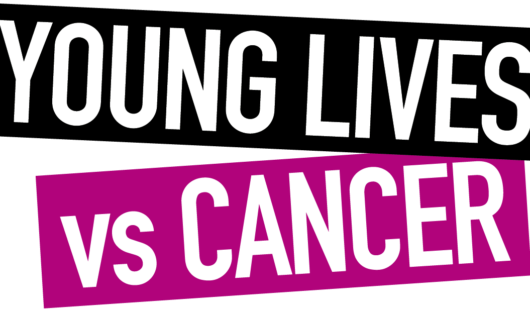Posted on Wednesday 26 November 2025
“A missed opportunity for children and young people with cancer” Our response to the 2025 Autumn Budget
“The solution is not to punish the most vulnerable” – Chancellor Rachel Reeves states, yet Budget missed opportunity to introduce Young Cancer Patient Travel Fund
Today (Wednesday 26 November) the Chancellor of the Exchequer presented the UK Government’s Autumn Statement (also known as the Budget), announcing major changes to taxes, pensions and benefits support for families.
Yet again, the Budget missed the opportunity to deliver the support that children and young people with cancer and their families desperately need and cannot wait any longer for.
In response, Rachel Kirby-Rider, Chief Executive at Young Lives vs Cancer, said:
“This Budget shows that the UK Government have the ability to take bold action to address child poverty, and we welcome the decision to lift the two-child benefit cap. No child should live in poverty, and today’s commitment will go some way to reducing the financial strain on many households.
“But yet again, this is another Budget that fails to deliver the real-world support that children and young people with cancer and their families desperately need.
“Children and young people with cancer and their families face significant, unavoidable financial pressures simply because they’re living with cancer – having to find £700 extra every month at a time they should be solely focused on getting through their treatment.
“The UK Government had opportunity in this Budget to tackle the single biggest cause of this financial burden – the cost of simply travelling to their treatment. Not a luxury, or an option. A necessity that the majority are struggling to afford and leaving one in 10 missing or delaying their treatment because of the costs. It does not have to be like this.
“We’ve long been calling for a Young Cancer Patient Travel Fund to support with the average £250 a month spent on getting to specialist treatment centres far from home. Care that can’t be moved to the community. Care that is vital to health outcomes.
“With no mention of any such support in this Budget, the upcoming National Cancer Plan must address this with a clear commitment to a Young Cancer Patient Travel Fund – so that getting to treatment never depends on a family’s bank balance.
“Today the Chancellor stated loud and clear that children should not bear the brunt of financial burdens and that the solution is not to punish the most vulnerable. The UK Government must deliver on these words, because vulnerable children and young people with cancer cannot wait any longer for this vital support.”
What does the Autumn Statement (Budget) mean for children and young people with cancer and their families?
The Autumn Statement (Budget) is the biggest fiscal event of the year and follows from the Spending Review in June which allocated funding to UK Government departments including setting core health spending.
The Budget contained a range of measures covering taxes, pensions, duty on fuel and vehicles, and welfare support. We also saw an increase to the minimum wage (of between 45p-85p an hour depending on age) from April 2026, and a freeze on rail fares and prescription charges.
Below we outline some key changes that may impact children and young people with cancer and their families.
Removal of the two-child benefit cap
The two-child benefit cap prevented parents from claiming support including additional Universal Credit payments and tax credits for any children they have beyond their second child.
The Chancellor announced that from April 2026, the two-child limit will be removed in full, meaning that households previously restricted by this cap can access more support which will help reduce the financial strain they are facing.
No child should live in poverty. As a member of the Child Poverty Action Group, we joined over 100 organisations ahead of the budget, calling for a removal of the two-child limit to ease the financial strain on many households and reduce the depth of poverty for 700,000 children.
Scottish Government were proposing to mitigate the two-child benefit cap if this change had not been announced in the Budget. With this no longer necessary, we hope that Scottish Government continue to look at ways to further address financial challenges in vulnerable populations, including enhancing support for children and young people with cancer and their families.
Community healthcare
The UK Government re-emphasised their commitment to delivering 250 Neighbourhood Health Centres in England, which will bring some healthcare into communities, helping reduce travel needed and enhance access.
However, children and young people with cancer will continue to need specialist care and support which must be provided in specialist hospitals, because of the expertise and resources needed. This model delivers the best possible outcomes, yet the majority are struggling with the costs of regularly travelling to these centres far from home, and one in 10 are missing or delaying treatment as a result.
To improve access and outcomes, and reduce the significant financial burden, a Young Cancer Patient Travel Fund is needed. Absent from the Budget, the UK Government must include this in the National Cancer Plan.
Welfare benefits
Embedded in the budget is benefit payments, including disability benefits like Personal Independence Payment (PIP) and Disability Living Allowance (DLA), increasingly slightly, by 3.8%, in line with inflation from April 2026*.
In addition, the Chancellor confirmed £820m will be invested in the “Youth Guarantee”* which intends to ensure young people are given work or education opportunities before moving onto welfare benefits. However, it is unclear whether this will impact the need for young people with cancer, unable to work or continue studies, to readily access vital benefits support – confirmation that they will not be impacted is needed.
Changes to the motability scheme* (that helps disabled people lease vehicles to improve their mobility) were also announced, with certain brands of vehicles to be removed from the scheme which the Chancellor shared would support “cost effective leases for disabled people”.
However, notably absent from the Budget were any improvement to the disability benefits system that would improve access for children and young people with cancer, addressing delays in the system and restrictive qualifying periods. Following previous changes that now restrict access to the Universal Credit Health Element for future claimants, there is still a significant way to go to achieve a welfare system that really works for children and young people with cancer. We hope the upcoming Timms Review of PIP will address these challenges.
Additional funds for devolved governments
The Budget also delivered additional funds for the devolved governments in Wales, Scotland and Northern Ireland, both through direct allocations and consequential allocations from other commitments. We hope that each devolved government use additional funding available to directly support children and young people with cancer in Wales, Scotland and Northern Ireland.
*Welfare benefits uprating is UK Government policy. Some benefits, including disability benefits, are devolved in Scotland and decided by Scottish Government. The Motability Scheme operates UK-wide, but different qualifying benefits are in place in each nation. The Youth Guarantee is UK Government policy for England.
Related Posts
Young Lives vs Cancer responds to news of Jess’s rule
Rachel Kirby-Rider, Chief Executive at Young Lives vs Cancer, responds to news of Jess's rule announcement

